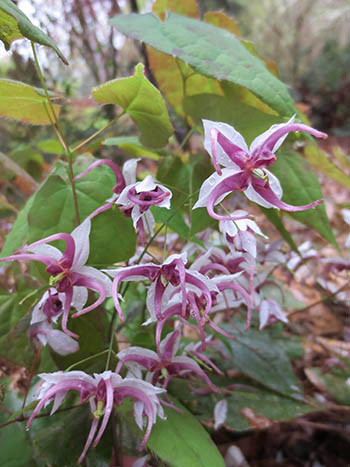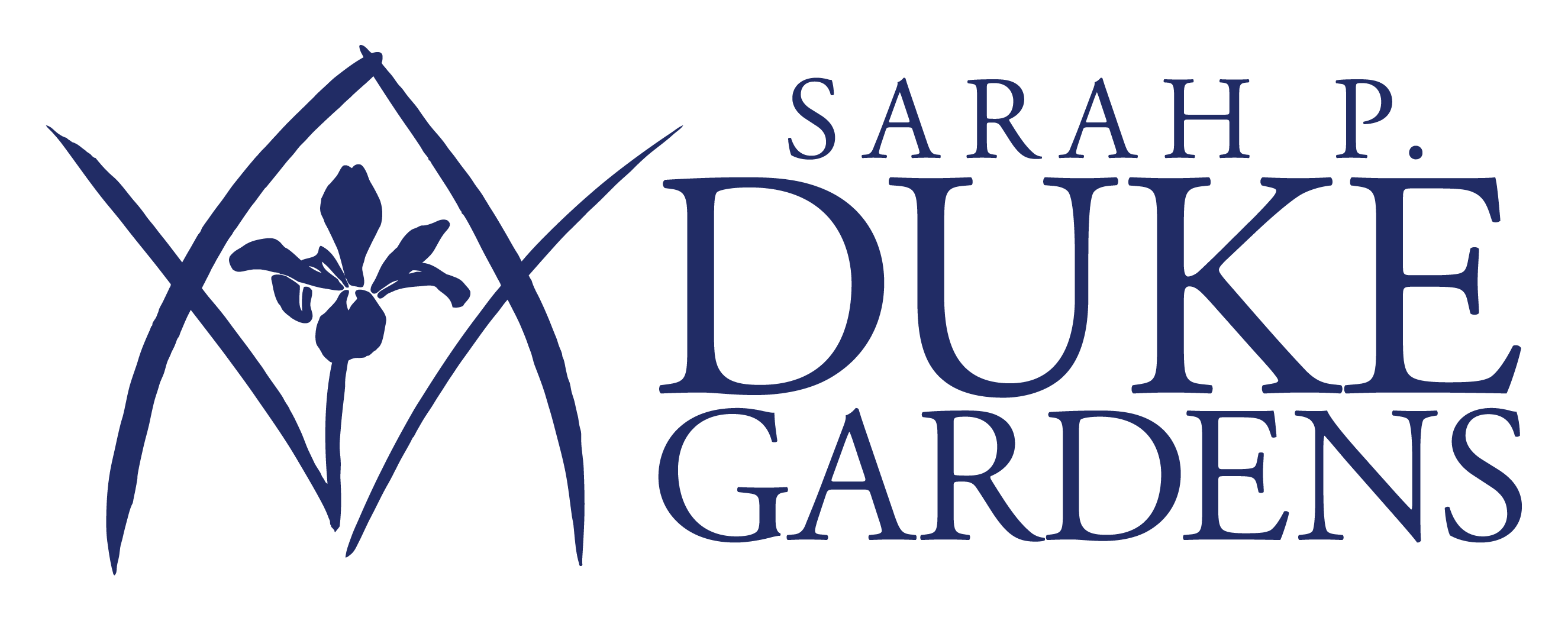
Photo by Michelle Rawlins.
Botanical name: Epimedium sutchuenense
Common name: Barrenwort, fairy wings, bishop’s hat, horny goat weed
Family name: Berberidaceae (Barberry Family)
Plant type: Perennial
Native range: Sichuan Province of China
Location in Duke Gardens: throughout the Asiatic Arboretum
Site requirements: This woodland perennial grows best in part sun to light shade, with rich humus, moisture retaining soil with an acidic pH of 6.2 to 6.5.
USDA Hardiness Zones: 4-8
Epimediums are shade perennials that thrive in well-drained, moisture retentive soils and are relatively easy to grow. Although many grow on basic limestone soils in China, they also grow well here in the acidic soils of North Carolina.
Many Duke Gardens visitors ask what kinds of perennials grow well in the shade, and the first plant that always comes to my mind is epimediums. They struggle in full shade and if it’s too dry, but if you can provide them a place to grow in which they receive dappled light, and you protect them from full sun and give them adequate water to get established, they should do just fine in your garden. Too much sun will scorch their leaves, and they will rot in soil that does not drain well. Once established, they are tough little perennials.
The epimedium that I chose to highlight is called Epimedium sutchuenense. It was introduced to North American gardens by Darryl Probst, an epimedium collector extraordinaire from Templeton, Mass. This Chinese species is from the mountains of southern Shaanxi and northwest Hubei provinces, where it blankets the steep slopes at around a 6,000-foot elevation. It has relatively large lavender-mauve flowers, long, thin 8- to 12-inch rhizomes and slightly mottled leaves that turn to a leathery texture in the summer. This species grows to about 8 inches high, and it makes an excellent low evergreen ground cover.
The Asiatic Arboretum currently exhibits around 70 different species and cultivars of epimediums. They are in bloom in early spring, and their season is long, so expect to see some blooming from mid-February through April.
Come to Duke Gardens to see why they call these cute little perennials fairy wings and bishop’s hats!
